Sustainability Influences Shopping Behavior
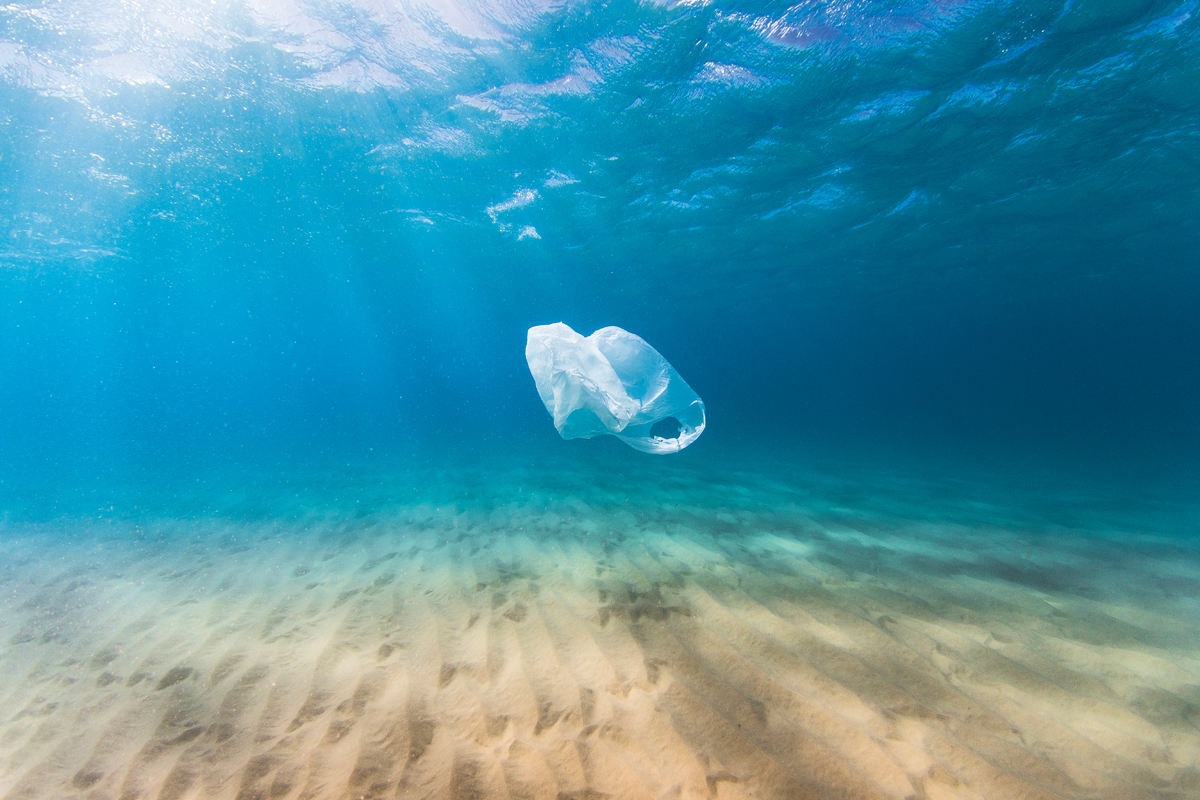
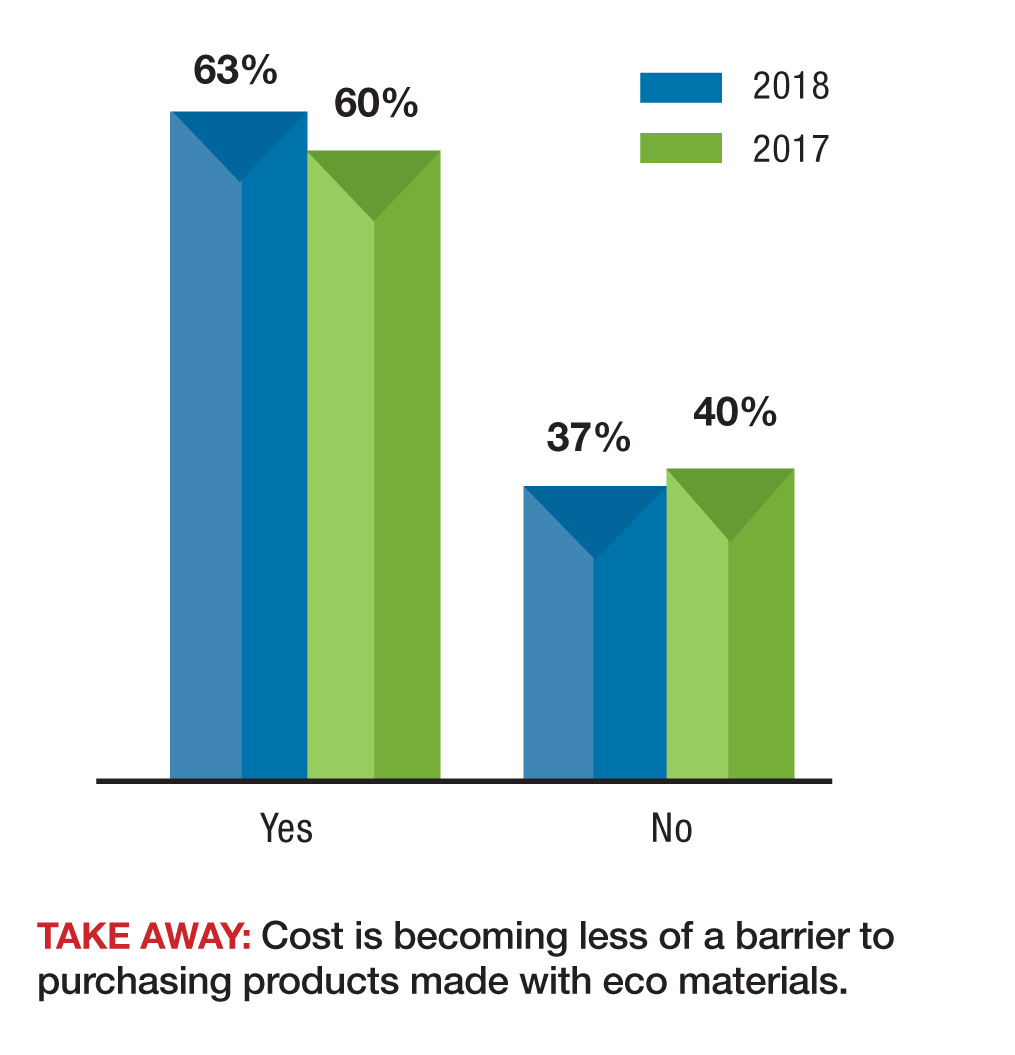



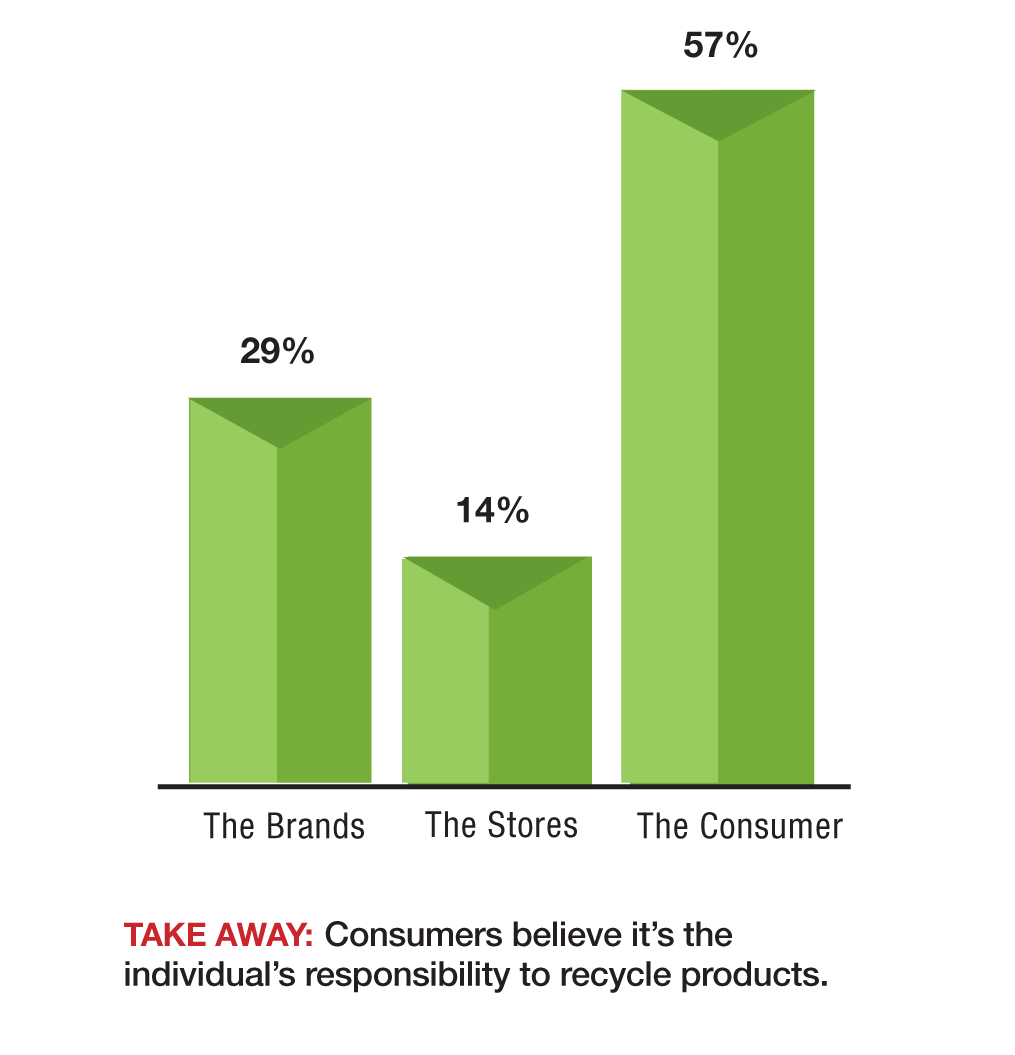
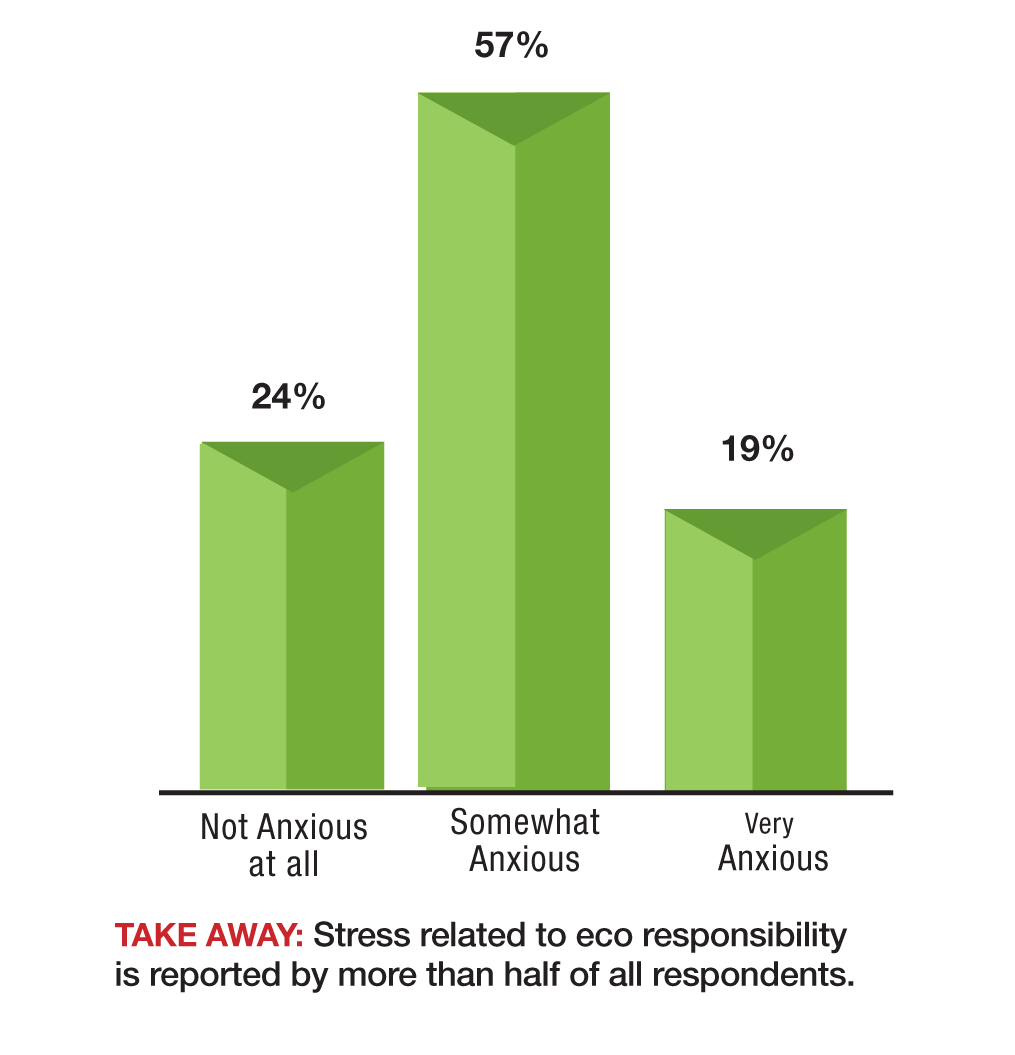
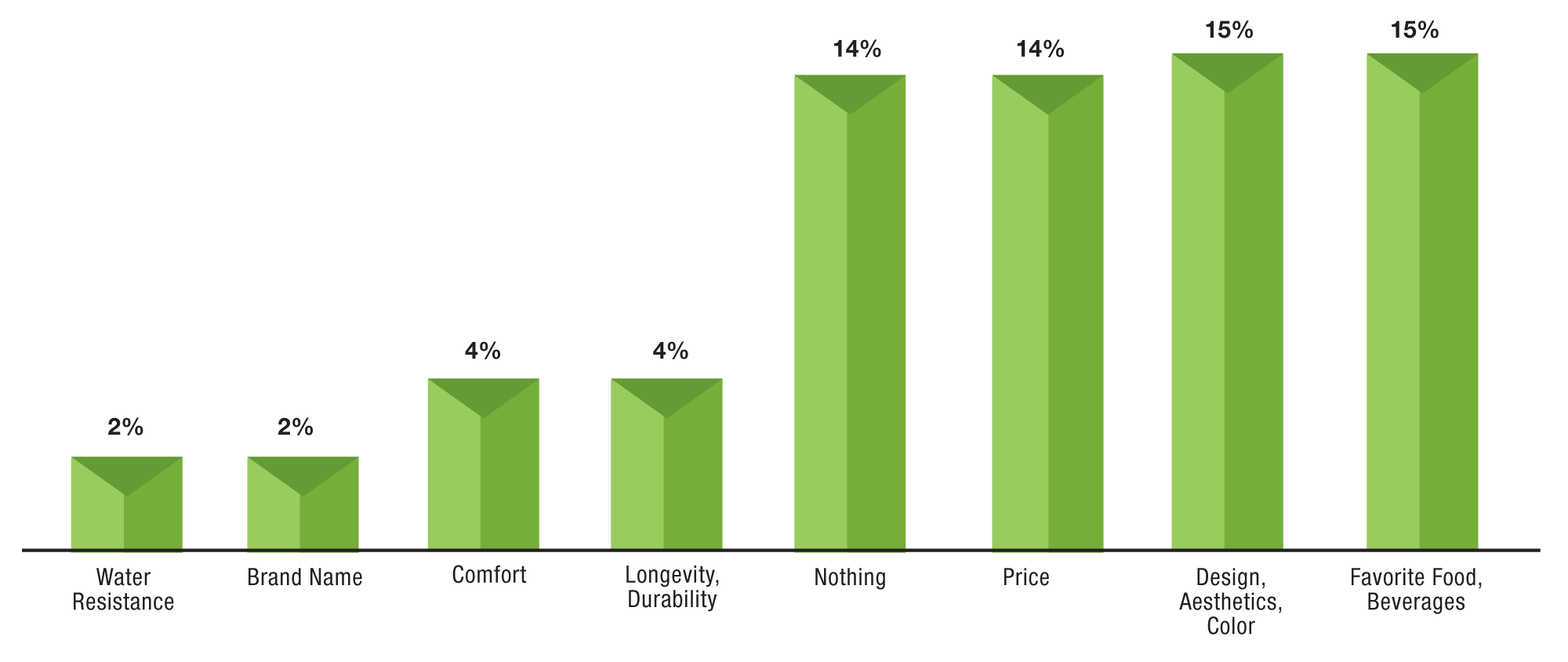
Verbatim
“I would give up eating fried chicken and bacon.”
“Candy”
“I would give up choosing a name brand to choose a company that has 100% sustainable apparel or footwear.”
“Chocolate”
“Too tough to answer!”
“Fancy product packaging.”
“I would give up plastic flip flops.”
“Pedicures”
“Probably some level of structural integrity, comfort, or aesthetic appeal.”
“Things I would not give up: Durability and fashion appeal. I feel like I would easily give up superfluous packaging.”





